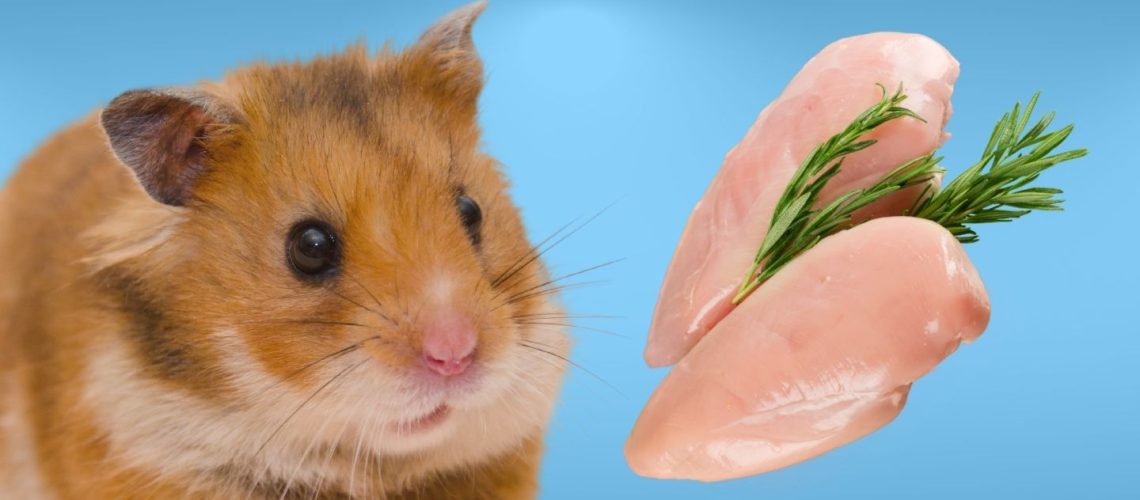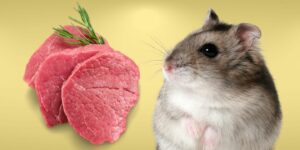The short answer is yes, hamsters can eat chicken in moderation. However, it's important to feed them only small amounts as part of a balanced diet in cooked form. Hamsters have specific nutritional needs, and it's essential to debunk common misconceptions about their diets. Chicken provides several benefits, but there are risks and precautions to remember when introducing it into your pet's eating habits.
Understanding a Hamster's Nutritional Needs
Hamsters require a balanced diet to ensure they receive all the necessary nutrients. Their dietary needs include carbohydrates, proteins, fats, vitamins, and minerals. The proper balance of these nutrients promotes health, well-being, and even potentially extends the hamster's lifespan.
Debunking Common Misconceptions about Hamster Diets
Some people believe that hamsters only eat seeds or pellets, but they actually need a diverse diet to thrive. Feeding your hamster only one type of food can lead to nutritional imbalances and health problems. Introducing a variety of foods, such as chicken, can provide much-needed nutritional variety.
Benefits of Chicken for Hamsters
Protein Content and Its Importance
Chicken is an excellent source of protein for hamsters, which supports their muscle growth and maintenance. It's essential for overall health and well-being. Chicken also contains valuable vitamins and minerals, such as B vitamins, which are crucial for optimal body function.
Vitamins and Minerals in Chicken
In addition to protein, chicken contains essential vitamins and minerals, including B vitamins, iron, and zinc. These nutrients contribute to a hamster's optimal health, supporting their immune system, metabolism, and overall well-being.
How to Prepare Chicken for Your Hamster
Cooking Methods: Boiled or Steamed
To ensure your hamster safely consumes chicken, it should be cooked properly – either boiled or steamed. Cooking removes bacteria and pathogens that can be harmful to your pet.
Avoiding Seasonings and Additives
When preparing chicken for your hamster, avoid adding seasonings, spices, or other additives. These can lead to stomach issues and health problems in small animals.
Shredding or Cutting Chicken into Small Pieces
To prevent choking, cut or shred the cooked chicken into small, bite-sized pieces. This makes it easier for your hamster to consume and digest.
Risks and Precautions of Feeding Chicken
Allergies and Food Intolerance
Some hamsters might have allergies or food intolerances, so it's essential to observe them for any signs of discomfort or illness after introducing chicken to their diet. If you notice any adverse reactions, stop feeding chicken and consult a veterinarian.
Overfeeding and Potential Health Issues
Feeding too much chicken can lead to obesity and other health issues in hamsters. Stick to the suggested portion of about the size of their own paw or no more than a teaspoon per day.
Ensuring Freshness and Food Safety
Always serve fresh, properly cooked chicken to your hamster. Avoid giving them leftover or spoiled chicken, as this can lead to serious health problems.
Alternatives to Chicken for Protein
Insects and Mealworms
Insects and mealworms are excellent, natural protein sources for hamsters. They can be purchased at pet stores or online.
Other Lean Meats: Turkey and Fish
Other cooked lean meats, such as turkey and fish, can provide similar benefits as chicken for your hamster's protein needs.
Commercial Hamster Protein Treats
Many pet stores offer commercial hamster protein treats formulated specifically for your pet's needs.
Creating a Balanced Hamster Diet
Daily Food Requirements
A balanced hamster diet should include high-quality hamster pellets, a variety of fruits and vegetables, and occasional treats like seeds, nuts, and lean meats.
Fruits and Vegetables: Quantity and Variety
Offer a healthy mix of fruits and vegetables, such as leafy greens, carrots, and apples. Monitor your hamster's eating habits to ensure they are consuming a sufficient variety.
Pellets and Seed Mixes
Pellets and seed mixes should make up the bulk of your hamster's daily food intake. These provide a balanced blend of nutrients for optimal health.
Monitoring Your Hamster's Eating Habits
Keep an eye on your hamster's food consumption and adjust their diet as needed based on their weight, growth, and overall health status.
Signs of a Healthy Hamster Diet
Activity Levels and Behavior
A hamster with a balanced diet will have consistent energy levels, remain alert, and display healthy behaviors.
Weight Maintenance and Growth
A well-fed hamster should maintain a stable weight and show normal growth patterns.
Fur and Skin Condition
A healthy hamster diet should result in smooth, glossy fur, and supple, irritation-free skin.
Frequently Asked Questions
Can Hamsters Eat Raw Chicken?
No, raw chicken can contain bacteria and pathogens that can make your hamster sick. Always serve cooked chicken instead.
Can Hamsters Eat Chicken Bones?
No, chicken bones can cause choking hazards and internal injuries. Always remove bones before serving chicken to your hamster.
Can Hamsters Eat Processed Chicken Products?
Avoid processed chicken products, as they often contain unhealthy additives and high levels of sodium that can harm your hamster.
Summary
Key Points to Remember
Hamsters can eat cooked chicken in moderation as part of a balanced diet. Monitor their portions, avoid seasonings, and consider alternative protein sources.
Ensuring a Happy and Healthy Hamster
By providing a diverse and balanced diet, including cooked chicken in moderation, you can support your hamster's well-being and help them live a long, healthy life. Make sure to observe your pet's eating habits, physical condition, and behavior to ensure optimal health.



